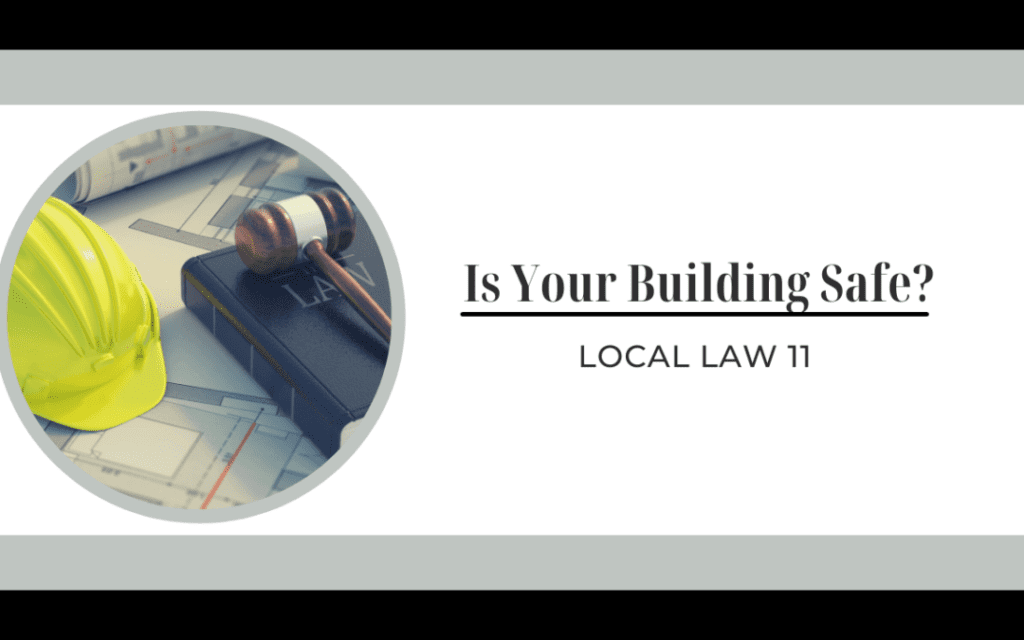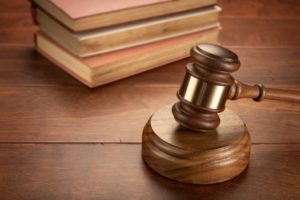
Co-op and condo board members have a responsibility to keep their buildings safe, habitable, and protected.
How safe is your NYC building?
In New York City, buildings taller than six stories must have their façades inspected every five years. This requirement falls under the Façade Inspection & Safety Program, or Local Law 11, and it’s an important part of keeping your property safe.
The law was implemented to protect your residents as well as passersby from the potential injury that could occur from deteriorating facades in the city.
Thousands of buildings in New York City are required to have these inspections. Your property might be one of them, and we want to make sure you understand all of your obligations and the necessity of the required inspections.
Today, we’re telling you everything you need to know about how good building management will keep your property safe and in compliance with Local Law 11.
Getting to Know the Facade Inspection & Safety Program (FISP)
FISP requires owners of buildings six stories or higher to have those buildings inspected every five years.
Inspections must be conducted by a Qualified Exterior Wall Inspector (QEWI), who will be a registered architect or a professional engineer who can prove they have at least one year of relevant experience. The inspector will look at all exterior walls and appurtenances (attachments). Then, your inspection report is filed into record.
Next steps after the inspection will depend on the status of your building following the inspection. Your building will receive one of these three designations:
- Safe.
Best case scenario. When the inspector files your inspection report and deems your building safe, you’re in good condition and you don’t have to worry about the façade until your next inspection in five years.
- Safe with a repair and maintenance program (SWARMP).
Still not so bad. This status means that your building’s facade requires repairs that you’ll need to make within one and five years. Make sure you make the necessary repairs, otherwise you risk being unsafe in your next inspection.
- Unsafe.
Not the result you want. It means your building’s facade has defects or problems that could potentially be a threat to residents and public safety. You’ll need to make immediate repairs and provide safety measures around your building until the appropriate actions have been taken.
SWARMP and Your New York Co-Op or Condominium
If you find your building in SWARMP status as an association board member, you might feel like you’re in uncharted territory. After all, you haven’t been deemed unsafe and there are no immediate repairs that need to be made to keep you in compliance. But, you’re also not completely cleared.
What should you do?
This designation means that the conditions of your building walls, and appurtenances are safe at the time of inspection. But, the inspector wants to see repairs or general maintenance completed before the next five-year inspection point. The SWARMP status is designed to protect your building from deteriorating to the point that it does become unsafe.
Your inspector will provide a specific date by which you must correct whatever conditions raised an alarm at your building. You’ll have to document the work that was done before that date.
The thing you want to avoid is having your building downgraded from SWARMP to Unsafe. The goal of making these recommended repairs and staying up to date with all the other preventative maintenance issues that should be on your radar is to elevate your building to a Safe classification at the next scheduled inspection.
Be Proactive with NYC Property Management
 The value of your building and the success of your condominium or co-op depends on compliance with Local Law 11.
The value of your building and the success of your condominium or co-op depends on compliance with Local Law 11.
The FISP is designed to protect people from being injured due to hazardous conditions at your building. Staying in compliance is good for business – and can help you reduce the risk of disputes, claims, or lawsuits. If someone gets hurt because something falls off your building, you can expect to hear from a lawyer almost immediately. Compliance with FISP means you won’t have to worry about that potential problem.
Current and future residents are going to appreciate living in a safe, well-maintained building as well. And, the preventative maintenance that this program requires you to take will always be more cost-effective than emergency repairs. Upgrades and updates are crucial to minimizing repair expenses, especially on older buildings in New York City.
Professional property management can help you avoid any trouble with your building’s façade and your compliance with this law. The laws are always changing. If you don’t have the time and resources to keep up, you might find yourself making an expensive mistake.
We can help with identifying licensed and insured vendors who understand the requirements of this program. They’ll provide high quality, well-documented work within the timeframe necessary.
We know that these inspections can be confusing and even finding a QEWI can be difficult. That’s why a property management company experienced in Local Law 11 project management is so important. We can take the stress and the confusion off your plate.
It’s what we do best.
Association board members are busy. Delegating some of the daily tasks and compliance activities to a qualified property manager will free up some time and lend some experience and expertise to the regulations and practices your building must follow.
Don’t get caught with an unsafe building. Get some expert help with our talented team. Contact us at Harlem Property Management.
Harlem Property Management is the authority on co-op and condo building management in Upper Manhattan and a member of the Real Estate Board of New York. We specialize in managing condos, co-ops, and multifamily buildings up to 99 units.
